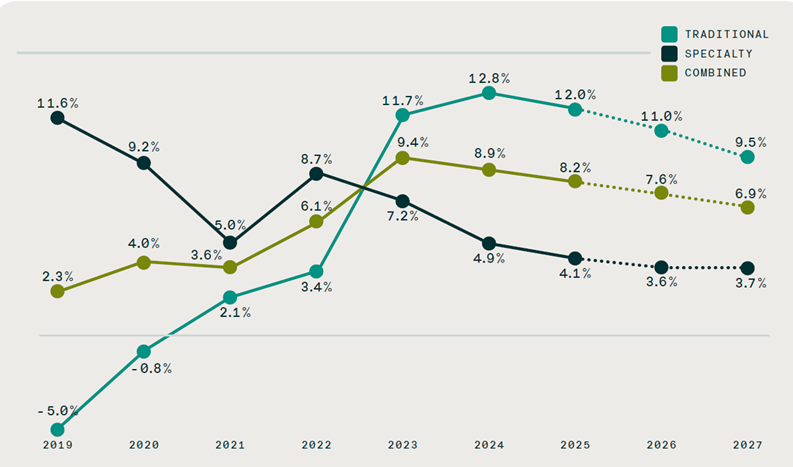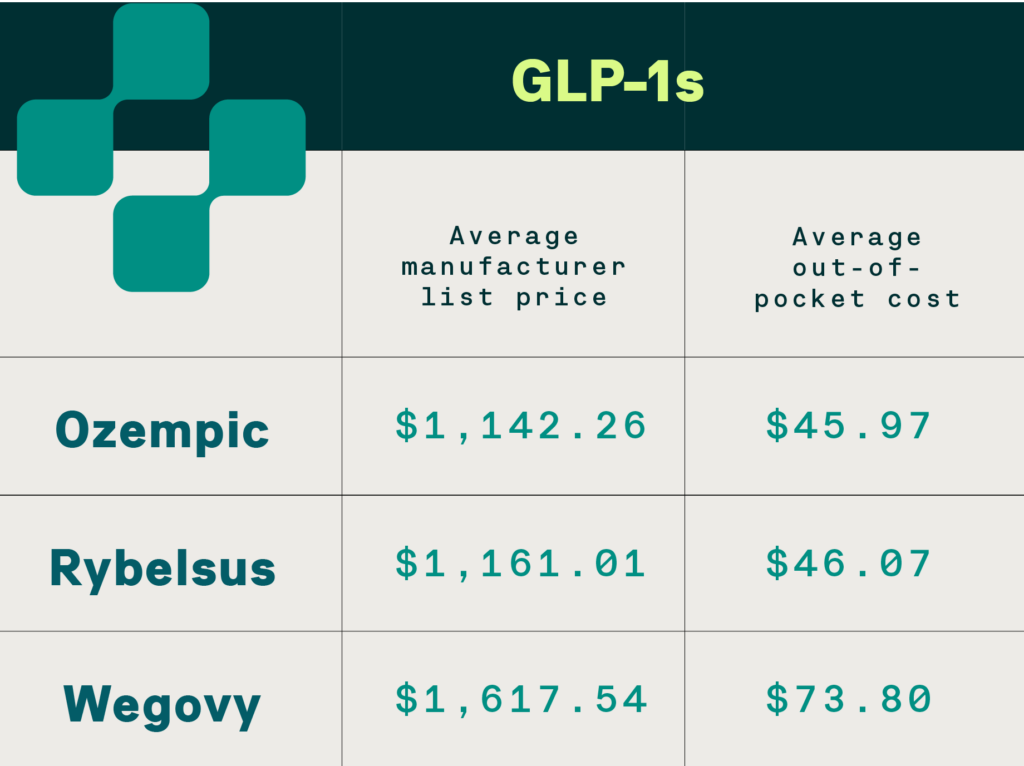Controlling GLP-1 costs and optimizing health outcomes.
Many Americans struggle with obesity, diabetes, and cardiovascular disease, or a combination of all three, which can be thought of as cardiodiabesity. Collectively, these conditions drive about $719B in annual health care spending.
Amid this public health crisis, Ozempic has become a household name. It’s a drug that’s part of a group of medications called glucagon-like peptide 1 (GLP-1) agonists. The skyrocketing on-label and off-label use of GLP-1s for weight loss is straining plan sponsor (the businesses, health plans, unions, government agencies, and public sector organizations that pay for health care) budgets as they seek to balance access and costs.
Despite the fact GLP-1s can be manufactured for less than $5 a month, pharma’s retail prices average more than $1,000 per month – or $12,000 per year.1 Pharma tries to claim their high prices are due to PBM-negotiated rebates, but that is patently false. Even after subtracting rebates and discounts, the retail price for GLP-1s in the U.S. are still significantly higher than prices in other countries.2
Our new data shows that GLP-1s are driving a historic shift in traditional drug spending increases, outpacing specialty drug trends for the first time. In 2024, drugs for weight loss accounted for about half of the total increase in drug spend – and GLP-1s for weight loss equated to 6.7% of total drug costs. Costs will only continue to rise as patient demand increases, including a projected 73.1% increase in utilization for weight loss in 2025.

Through Express Scripts’ negotiations, programs to lower net prices of drugs, and prescription benefit designs, our patients are financially protected from high GLP-1 costs. For semaglutide (better known as Ozempic, Rybelsus, or Wegovy), Express Scripts patients pay an average of $46-$74 out-of-pocket for a 30-day supply. While this is a quantifiable savings for our patients, the total costs remain unsustainable for payers and the health care system overall.

Drug manufacturers can and should do more to lower the cost of medicines for the U.S. health care system. As we’ve shared with Members of Congress, Express Scripts welcomes manufacturers lowering their list price and maintaining discounts for payers trying to reasonably expand coverage to better serve patients.
- Policymakers should protect employers’ flexibility in creating personalized and targeted solutions to enable affordable GLP-1 access.
1 https://jamanetwork.com/journals/jamanetworkopen/fullarticle/2816824
2 https://www.sanders.senate.gov/wp-content/uploads/9.23.2024-Novo-Nordisk-Untenable-Strategy-final.pdf
EncircleRx: Cardiodiabesity
New solutions are needed to expand appropriate, affordable GLP-1 access. In 2024, we launched the industry’s first financial guarantee for GLP-1 spend with EncircleRx. In 2025, we introduced a new version of EncircleRx to make certain GLP-1s available to patients for no more than $200/month – less than half of the cash price offered through direct-to-consumer manufacturer options (on average, $499 per month). Plan sponsors will also see a significant reduction in the net cost per prescription. Our suite of solutions give plan sponsors optionality and predictability to help meet the growing demand to cover GLP-1s for weight loss without straining their health care budgets.


